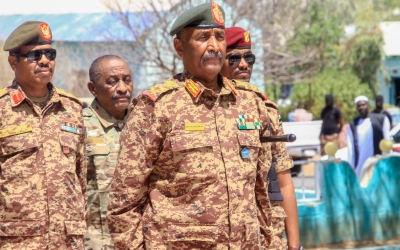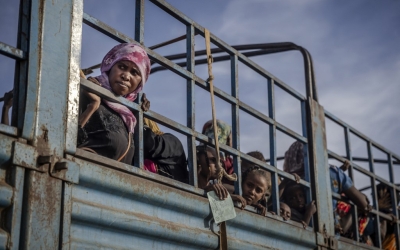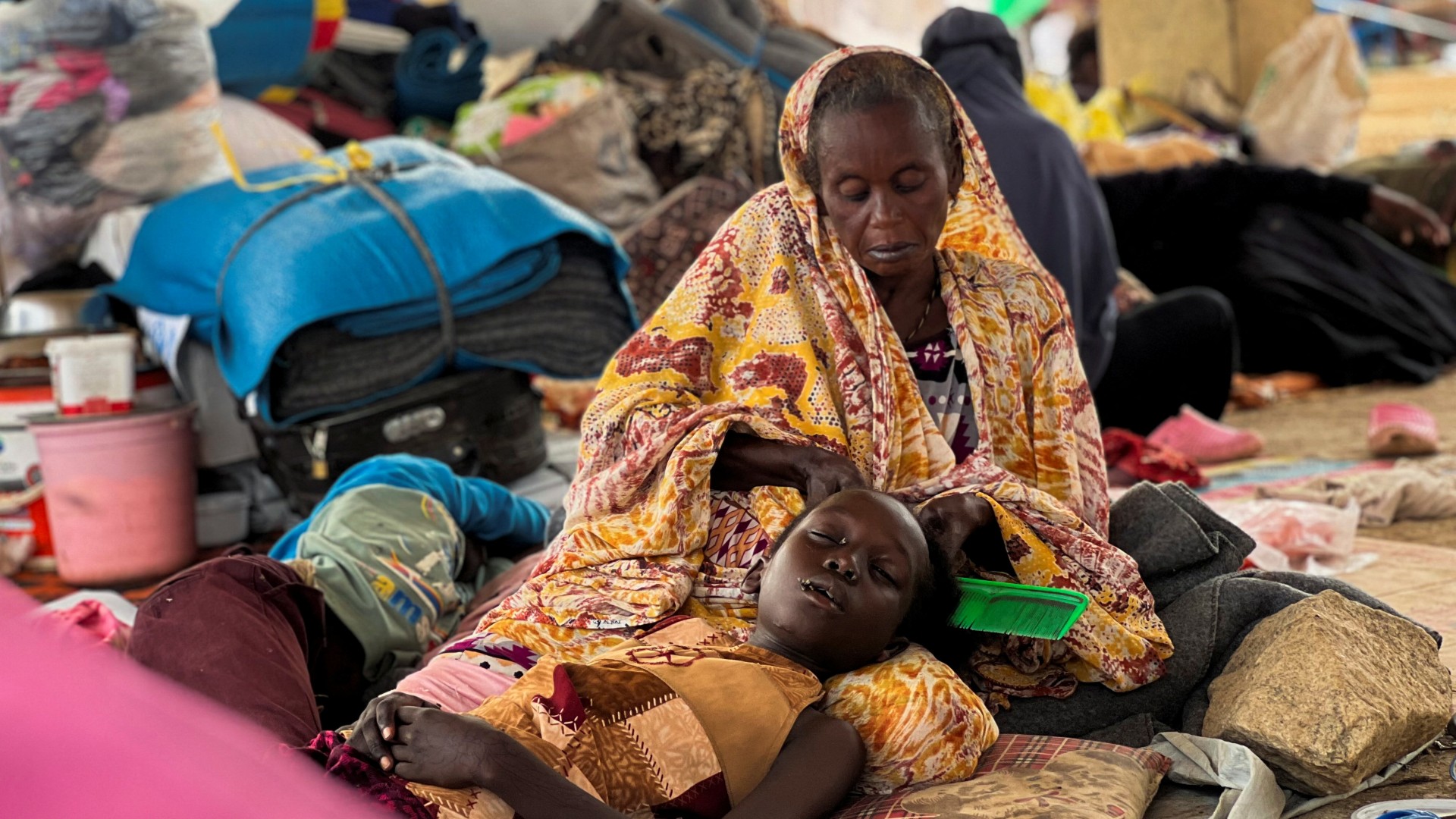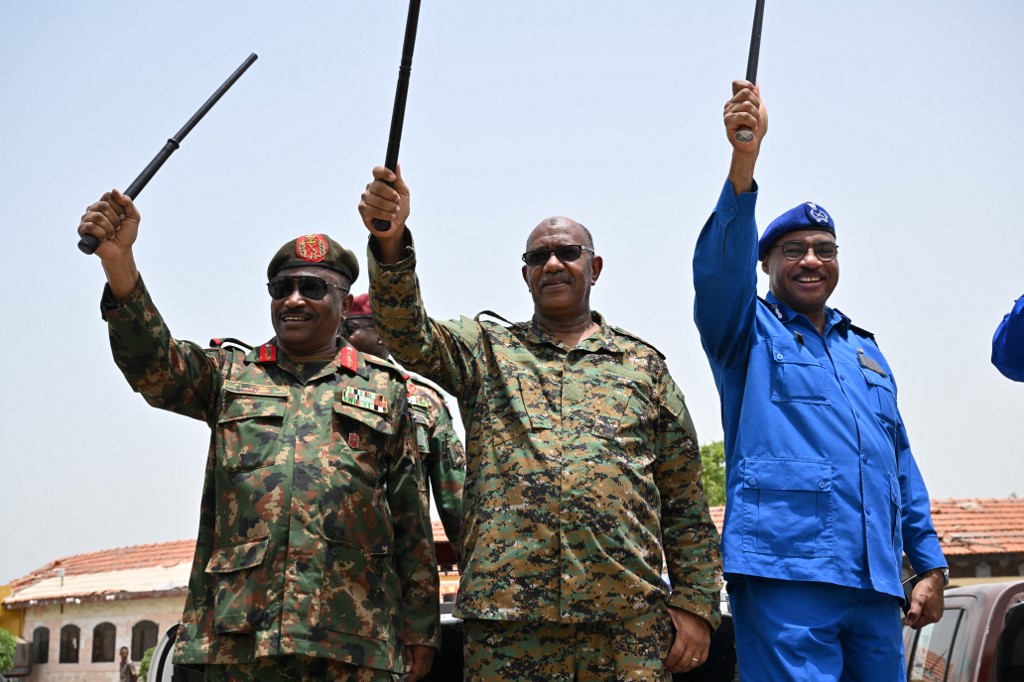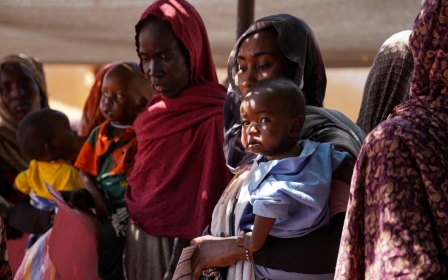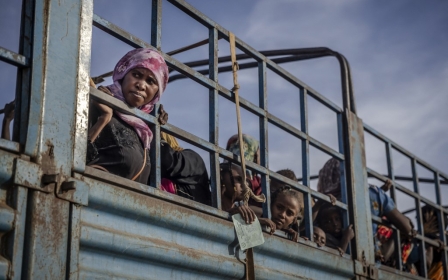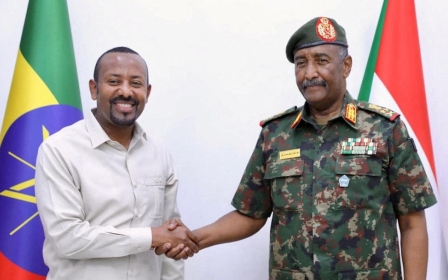Sudanese communities take up arms as the army fails to protect civilians
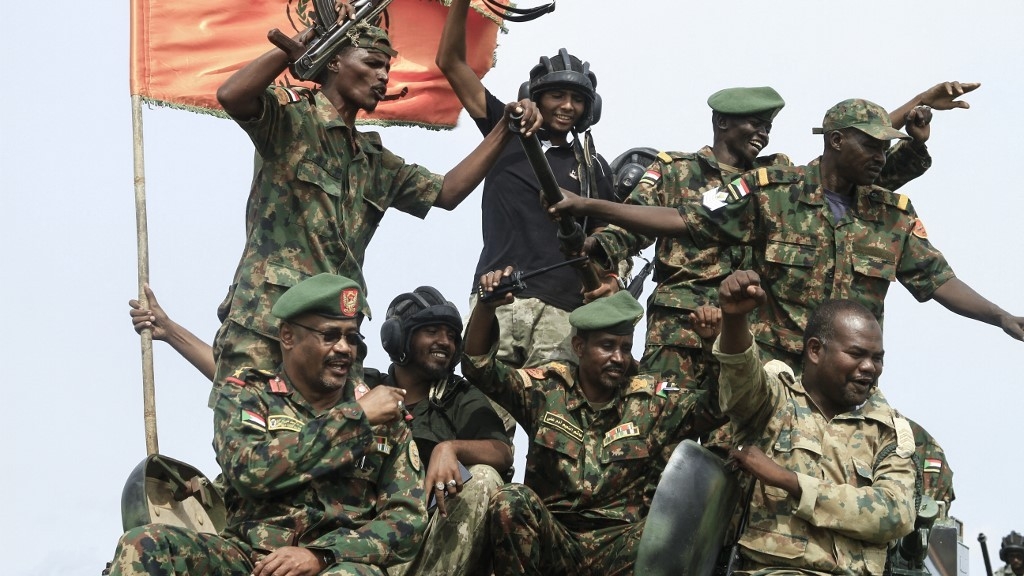
In the wake of over a year of relentless conflict, Sudanese grassroots movements are mobilising for self-defence against the Rapid Support Forces (RSF), which has been clashing with the Sudanese army since hostilities erupted between the former allies in April of last year.
As the conflict edges closer to full-scale civil war, international efforts to contain the violence have largely failed, leaving civilians to fend for themselves.
The rise of self-defence initiatives has been fuelled by the RSF's brutal actions across the country and the perceived inability or unwillingness of the Sudanese Armed Forces (SAF) to protect civilians.
Although SAF chief Abdel Fattah al-Burhan has called for an "armed popular resistance" under the SAF's command, the current wave of grassroots mobilisation is notably independent, with many expressing distrust in the SAF’s capacity to safeguard them.
However, critics warn that arming civilians could rapidly escalate the conflict into a full-blown civil war, particularly given the pervasive hate speech, tribal populism and ethnic rhetoric already inflaming tensions.
New MEE newsletter: Jerusalem Dispatch
Sign up to get the latest insights and analysis on Israel-Palestine, alongside Turkey Unpacked and other MEE newsletters
Sudanese analyst Salah Adoma, for example, downplayed the significance of the self-defence efforts, cautioning that they could worsen the situation and expand the war.
He warned that such resistance could open the door for remnants of the old regime and Islamists to exploit the populism and regain power.
'This is a raging civil war, and people are being drawn into the conflict not by choice but out of necessity'
- Magdi el-Gizouli, analyst
"Many of these calls for self-defence are coming from associates of the old regime or individuals who have been brainwashed. It would be better for all of us to pursue dialogue and peace negotiations to end this conflict," Adoma told Middle East Eye.
Self-defence efforts have emerged across several regions, including el-Fasher in North Darfur, al-Dalang in South Kordofan, el-Obeid in North Kordofan, Babanusa in West Kordofan and central Sudan, including el-Gezira.
These movements reflect a growing determination among communities to protect themselves, independent of SAF's command.
A prominent member of the Darfur rebel coalition, the Joint Forces, which fights alongside the SAF in el-Fasher, noted that most locals who have taken up arms are not aligned with the army.
"The majority of those joining the fight against the RSF are doing so to protect themselves, their families and the city. Their primary enemy is the RSF and they are organising independently," said the source, who requested anonymity for security reasons.
He added, "The people of al-Fasher have been under siege and subjected to intense RSF attacks for more than two months now, but they remain steadfast under our popular resistance slogan ‘el-Fasher is strong'."
Political analyst Magdi el-Gizouli argued that self-defence is a natural and necessary response to ongoing RSF attacks. "Villagers in el-Gezira, Sennar and Kordofan are under daily assault by RSF or RSF-affiliated militias. It’s only reasonable that they arm themselves by whatever means available," Gizouli, a fellow at the Rift Valley Institute, told MEE.
"This is a raging civil war, and people are being drawn into the conflict not by choice but out of necessity."
Gizouli acknowledged the concerns surrounding the spread of arms but argued that these fears are somewhat misplaced given that the country is already flooded with weapons. "In practical terms, these recruits function as self-defence units in their villages and towns, defending against RSF attacks. They are not the Popular Defence Forces of the 1990s. They lack a central command and do not share the same ideology or creed," he added.
In South Kordofan's al-Dalang city, a newly formed group called the Organisation of Nuba People Unity successfully repelled RSF forces.
This group, made up of thousands from the Nuba community, includes soldiers affiliated with both the SAF and the Sudan People’s Liberation Army (SPLA) under Abdelaziz al-Hilu, as well as ordinary citizens who have taken up arms.
"The fight against the RSF began in al-Dalang this year and has since spread to other areas, including Rashad, al-Abbasiya and Tagali," said a source within the group, speaking on condition of anonymity.
"We will continue to fight the RSF and expel them from our lands. While we are open to support from SAF or SPLA, we are prepared to defend our state on our own.
"We are the majority, and we will not relinquish our land to the Janjaweed [Popular Defence Forces]," he said, referring to the notorious militia responsible for widespread atrocities in Darfur two decades ago.
Central Sudan rises in self-defence
Thousands of Sudanese citizens have mobilised into what are known as Popular Defence Units under SAF command to protect themselves from ongoing attacks by the RSF.
The concept of self-defence gained traction in el-Geneina, West Darfur, last year and has since spread to al-Dalang and el-Obeid in South and North Kordofan and is now reaching new areas in central Sudan.
While it is common for people in Sudan's peripheral regions to bear arms due to a history of civil wars, this is the first time in recent history that residents of central Sudan have taken up weapons in self-defence.
The violence, which began in el-Gezira state in the west in December last year, has spread to Sennar, White Nile, Blue Nile and North Kordofan.
In response to RSF claims of surrounding Sennar, White Nile and Blue Nile states, a popular coalition known as The Middle Call has formed, branding their mission as "suicidal". According to its manifesto, the group aims to expel the RSF, accusing them of land grabbing and displacing local populations.
"Our call is for a popular confrontation against the war waged by Janjaweed militias against the Sudanese people. We are committed to defending the people of central Sudan, organising them across the states of el-Gezira, Sennar, White Nile and North Kordofan," the manifesto states.
The coalition also accuses the RSF of orchestrating a regional plot, backed by external supporters, to target its resource-rich region for its strategic importance in food security.
"Our struggle is linked to the liberation of our region as part of the broader battle to liberate the entire country," the manifesto declares.
The Middle Call plans to train and arm youth to fight the militias, launch a global media campaign to raise awareness, and pursue legal action against the RSF and its external backers, demanding compensation for the atrocities committed.
They also intend to coordinate with Sudanese expatriates to provide humanitarian assistance.
The group is adamant in its opposition to any peace talks or negotiations allowing the RSF to retain control over any areas in el-Gezira, Sennar, White Nile, Blue Nile or North Kordofan.
The Middle Call recently announced on its Facebook page the graduation of its first self-defence battalion in central Sudan, which includes members from el-Gezira, Sennar, White Nile, Blue Nile and North Kordofan.
This battalion has been trained to defend their lands against RSF incursions and various forms of violence, including mass killings, rape, abductions, village burnings and forced displacement.
"The [RSF] militias have deliberately targeted farmers, driving them from their land, looting crops, food stores, seeds, and agricultural machinery'
- Ahmed al-Sharif, Middle Call coordinator for White Nile region
Speaking at an online symposium, Ahmed al-Sharif, Middle Call's coordinator for the White Nile region, highlighted the systematic and organised attacks on central Sudan, accusing the RSF of orchestrating a campaign aimed at displacing residents and seizing their land.
He stated that thousands have been forced to flee el-Gezira, Sennar, North Kordofan and Blue Nile states.
"The militias have deliberately targeted farmers, driving them from their land, looting crops, food stores, seeds, and agricultural machinery - essentially stripping away the means of survival and agriculture in these villages. This is a clear attempt to occupy the land," he told MEE.
At the same event, Mohamed Ahmed al-Mahjob, coordinator for North Kordofan, blamed the RSF for the famine threatening millions across Sudan.
Agricultural expert Abdul Latif Ahmed argued that Sudan's food sovereignty has collapsed due to intentional attacks, displacing farmers and landowners from the fertile regions of el-Gezira, Sennar, White Nile and North Kordofan, where much of the land is now under RSF control.
"This tactic is reminiscent of land-grabbing practices seen in other countries and also in Sudan's Darfur region by the same militias. Some nations in the region appear to be eyeing these rich lands to secure their own food supplies," he told MEE.
Rifts in SAF-controlled groups
Meanwhile, recent developments indicate emerging cracks within the popular resistance under SAF command.
A leading member of the armed popular resistance in River Nile State, Ahmed Ali, has defected and taken up arms against the SAF.
Ali, once a key figure in the armed resistance movement in River Nile State, confronted an SAF battalion in Berber city, White Nile State.
Bushra Alsaim, a local leader from Berber, told MEE that Ahmed Ali has engaged in battles against the police and army forces in the area, declaring his rebellion against the SAF.
According to Alsaim, Ali had raised concerns about the financing of the armed resistance movement, accusing associates of the old regime of embezzling gold-mining resources meant to support the movement's volunteers.
"Fighting has been ongoing for nearly a week in al-Fraikha village near Berber between forces loyal to Ahmed Ali and government troops. Tanks and drones have been deployed, with casualties on both sides," he explained.
"We’ve heard that negotiations are underway, and we hope this can be resolved peacefully."
Middle East Eye delivers independent and unrivalled coverage and analysis of the Middle East, North Africa and beyond. To learn more about republishing this content and the associated fees, please fill out this form. More about MEE can be found here.


